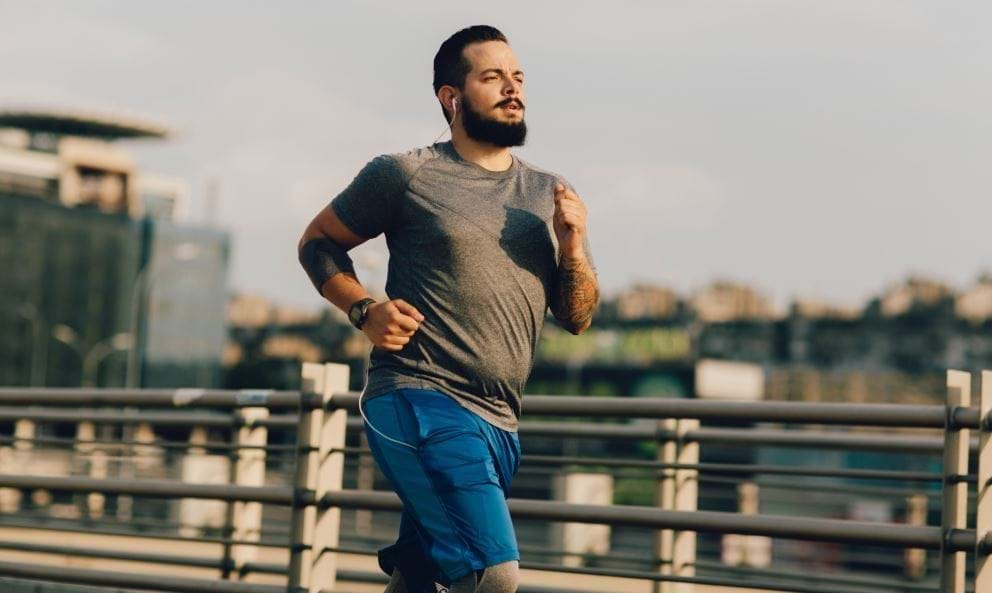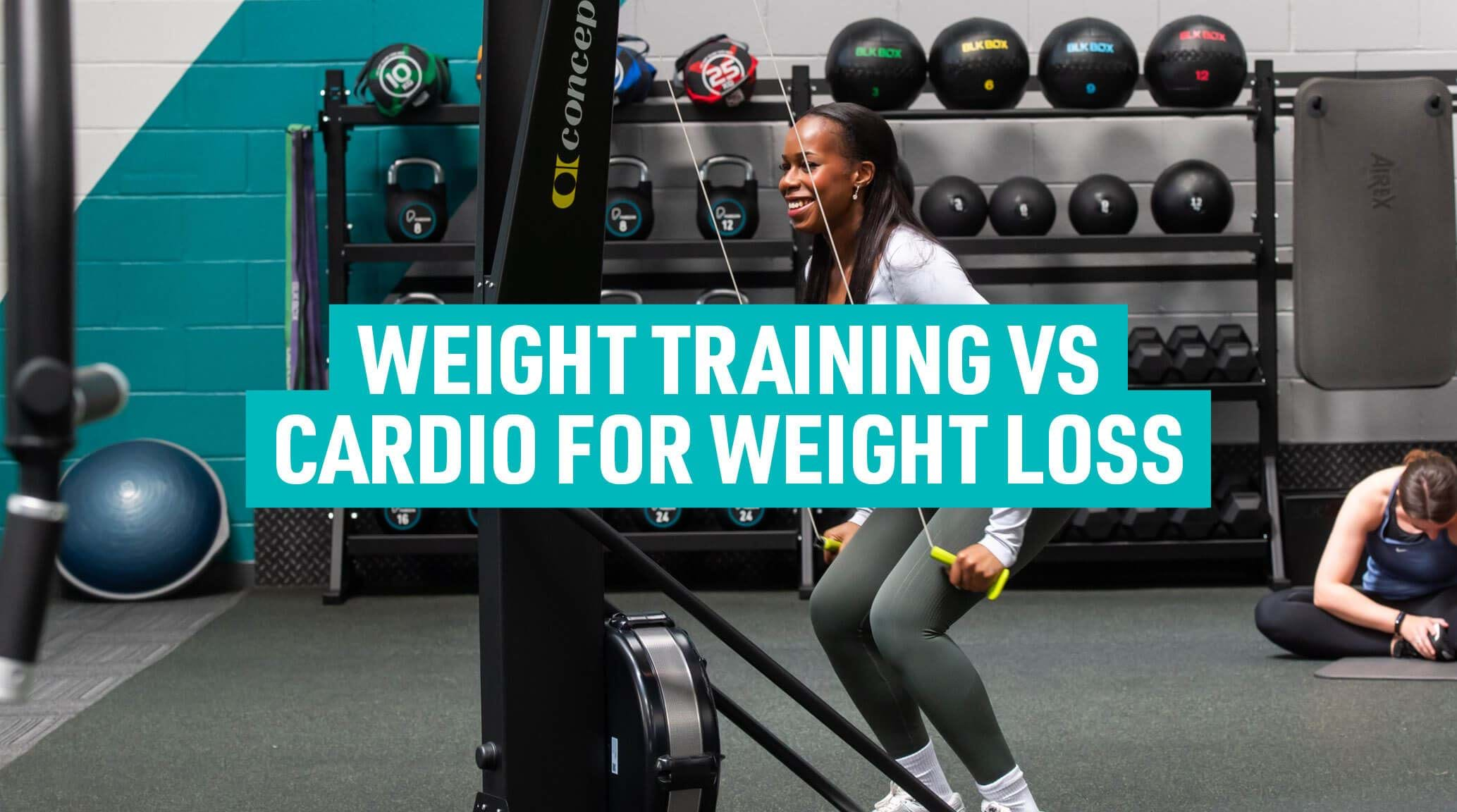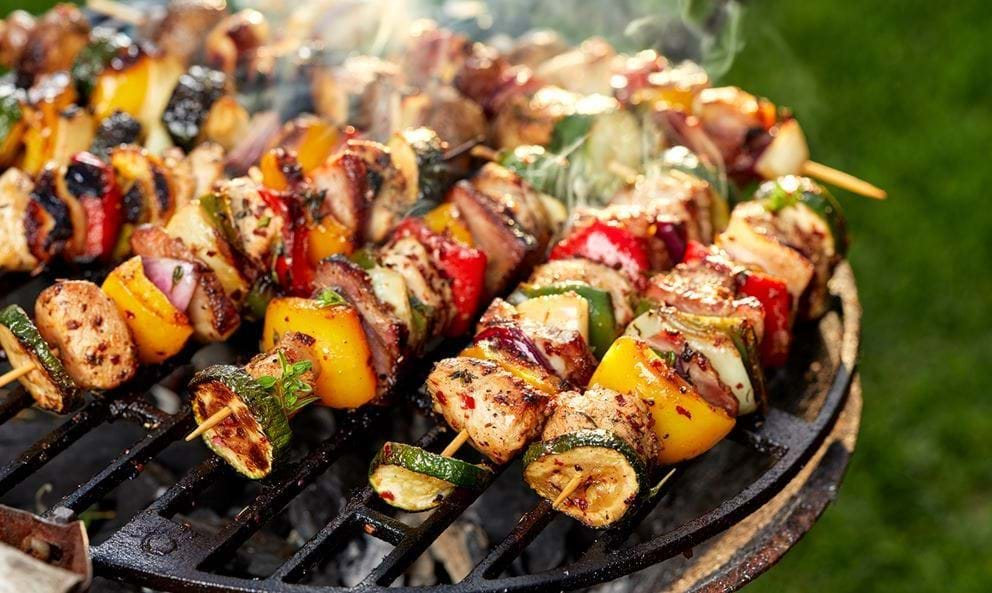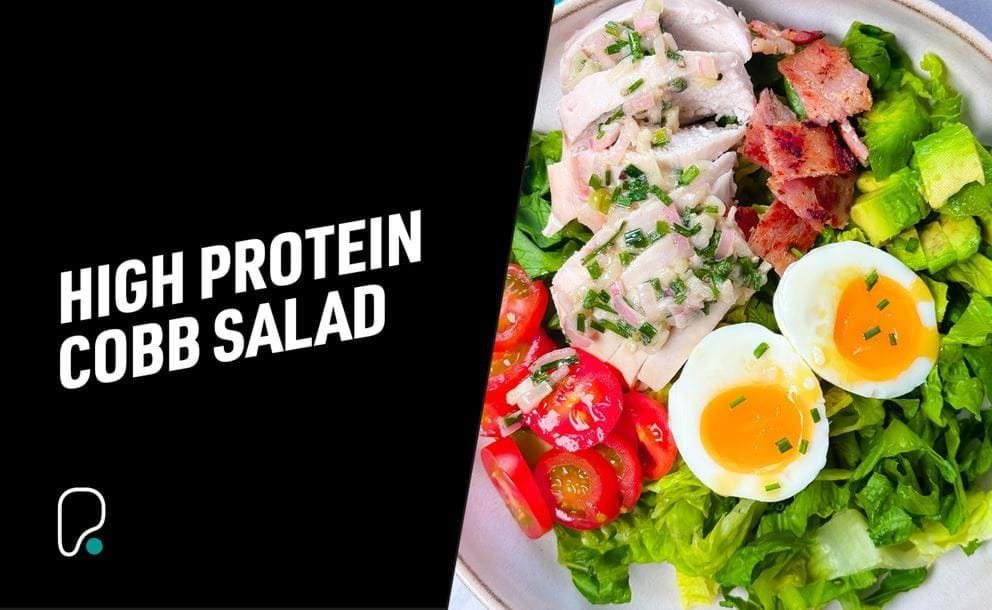The Weight Loss For Men Guide

There are many reasons someone might want to lose weight. Whether you want to trim down for aesthetic or health reasons, it's important to set realistic goals about how much weight you should lose and how fast you should lose it.
Losing weight too fast by drastically undereating can damage your body, for example by causing deficiencies or decreasing your muscle mass (you can learn more about what happens when you lose weight too fast here). Fast weight loss can also be unsustainable and often leads to yo-yo dieting as a result.
Focus on making small, sustainable lifestyle changes that will lead to weight loss and improved health is a much better and long-lasting approach to weight loss.
When setting out to lose weight, it's also important to remember that health looks different for everybody. For example, you might want to achieve 10% body fat but find that at this weight you have low energy levels or are unable to maintain this weight while still enjoying the foods you like or socialising. Being flexible with your weight loss goals and coming at it from a health first approach means you will be able to reach a weight that is healthy for you, and at a sustainable pace.
In this article, we will cover how men can safely lose weight, from diet, to exercise, to other lifestyle factors.
Calories for men’s weight loss: what do you need to know?
There is no one size fits all to how many calories you should be eating to lose weight, so avoid any weight loss plan for men that takes a blanket approach to what calories you should consume. Instead, work out your total daily energy expenditure (TDEE), or the number of calories your body needs to maintain its weight, and take between 500 -- 1,000 calories off create a calorie deficit. This will create a deficit that will allow you to lose approximately 1-2lbs a week.
For example, if your TDEE is 2,700, you would be looking at 1,700 -- 2,200 calories. Having a calorie deficit is essential in achieving weight loss in men. The easiest way to work out your TDEE is through an online calculator, as these calculate your basal metabolic rate (BMR) and also take into consideration your activity levels.
Once you know how many calories you should be eating to be in a deficit, you can then look to plan your meals to meet your new target. Tracking your calories is a helpful way to get started with weight loss so you can see how many calories you're eating and where you could make healthy swaps to reduce your calorie intake. We often overlook calories from drinks, sauces, and small snacks, so this can be a handy way to spot that.
There are plenty of calorie tracking apps and websites you can use to log what you eat, such as MyFitness Pal.
Macros for fat loss – are they important?
Now you know your calories, but what about macros? Macronutrients, otherwise known as macros, are a group of nutrients that are found within our food and give us energy. There are three macros: carbs, proteins, and fats - and each macro has a different energy value, which influences how many calories of energy we get when we consume them.
They also affect hunger and satiety differently -- protein is very satiating, which helps to keep you fuller for longer, which is one of the reasons that it is so important to get enough when you are dieting!
You should have a mix of carbs, protein, and fats in your diet, as they each have an important role in your health and how your body functions.
- Protein provides the building blocks for muscle growth, along with the repair and recovery of muscles after training. It's important to get enough protein when you're dieting as it can help to offset the muscle loss you may experience when in a deficit. It also helps with hunger and satiety -- helping you to feel fuller for longer!
- Carbs are our body's and brains preferred energy source, which is why many people who go on low carb diets report having low energy and brain fog. Eating enough carbs helps to fuel your workouts, helps to reduce muscle breakdown, and also promotes better digestive health.
- Fats are often the macro people avoid, but it's really important to include healthy fats within your diet. Fats (like carbs) are a source of energy, are responsible for carrying fat-soluble vitamins A, D, E and K, and are involved with many of our biological functions such as hormone production and regulation.
There is no set rule to how you should split your macros, but guidelines for the general population are to have 0.8g of protein per kg body weight per day, and for fat and carbohydrates to make up 30-35% and 45-65% of your diet respectively. Those who are active will usually benefit from eating a bigger share of carbs as it is needed to fuel the body, and those who are extremely active or are in a calorie deficit should bump up protein to around 1.2 -- 2.2g per kg of body weight, as this will help prevent muscle from being used as fuel, as well as provide greater satiety on a lower number of calories.
It's not all about macronutrients, though. Micronutrients, or vitamins and minerals, are important in keeping your body healthy. While it is entirely possible to live off takeaway and chocolate while in a calorie deficit, this isn't the healthiest choice for your body and could lead to malnutrition very quickly. Instead, aim to have around 80% of the food you eat come from micronutrient-rich vegetables, complex carbs, lean meats, and healthy fats, with around 20% coming from less nutritious foods. Having this balance will make dieting more sustainable and help with adherence. Not only will this ensure you are getting a good mix of micronutrients, but it will help stave off hunger too by adding more volume to your meals. 500 calories of lean meat, complex carbs, and veggies are much more filling than 500 calories of chocolate or crisps.
Don't forget, healthy doesn't have to mean bland! We have tons of recipes showing how healthy swaps and flavoursome herbs can be used to make healthy meals for weight loss. From making healthy versions of your favourite takeaways, through to protein-packed desserts, getting creative in the kitchen makes it much easier to fall in love with what you are eating while trying to lose weight.
Fat loss vs weight loss
One of the reasons it is important to lose weight slowly is that, when you lose weight quickly, it sometimes comes from your muscles rather than fat. Muscle is crucial for keeping your body healthy and active, looking toned, and burning calories, so you will want to retain as much muscle as possible while dieting!
The general recommendation is to aim to lose 1-2lbs a week to ensure the weight you lose is fat, although losing weight slower than this is fine.
When tracking your weight for weight loss, it's important to remember that weight fluctuates for multiple reasons, so pay attention to the overall trend rather than the individual numbers alone. Using progress pictures and measurements can help to provide a more in-depth picture of your fat loss progress than weighing alone.
What about exercise for weight loss?
Sadly, there is no magical weight loss workout plan for men. Keeping in an overall calorie deficit is the most important thing when you are trying to lose weight, and it is possible to lose weight without exercising. That said, exercise is incredibly important for your overall health, and it can assist with your weight loss.
There are two types of exercise you'll want to include when trying to lose weight:
- Cardio, or cardiovascular exercise, is exercise which increases your heart rate for a prolonged period. These workouts are great at burning calories, which can help to create a calorie deficit more easily as your energy expenditure is higher. Cardio can either be HIIT (high-intensity interval training) or LISS (low-intensity steady state cardio). HIIT workouts combine intense bursts of exercise with rest or recovery periods, while LISS workouts are longer workouts undertaken at a steady pace. You can learn more about LISS vs HIIT here. Not sure which cardio workouts to try? We've rounded up 6 of the best cardio workouts here.
- Resistance training involves exercises that work against a force or stimuli, such as dumbbells or resistance bands. Resistance training is great for building muscle and strength, and when you are dieting it can protect against muscle loss. We recommend that everyone incorporates resistance training into their lives, but especially those who are trying to lose weight for this reason.
Although not strictly exercise, NEAT (Non-Exercise Activity Thermogenesis) can help you to burn more calories throughout the day. NEAT is the energy we expend outside of eating, sleeping, breathing, and exercising -- from cleaning the house to fidgeting. Adding in more movement throughout the day can help to increase how many calories you burn, which makes it easier to be in a deficit. You can learn more about what NEAT is and how to increase it here.
If you are new to exercising, you might want to try a few different options and formats. Finding exercises and a workout routine that you enjoy will make it easier to stay active. You're more likely to stick at it if you don't have to force yourself to do it! You can find beginner, intermediate, and advanced gym workout plans for men here, as well as lots of free workouts to choose from here. You can also download our free PureGym app which has plenty of workouts with handy exercise demonstrations and guides to help you reach your weight loss goals!
Other factors which can impact men’s weight loss
Although weight loss does largely come down to being in a calorie deficit, it isn’t always as simple as eating less and moving more. Other factors that can affect weight loss include:
Not getting enough sleep
Stress levels
Not eating enough calories
1. Not getting enough sleep
Sleep deprivation can result in increased levels of ghrelin, the hormone responsible for hunger, and decreased levels of leptin, the hormone responsible for satiety. Lack of sleep can also lead to decreased insulin sensitivity, which can cause fat to be stored more easily. Therefore, if weight loss is your goal, sleep deprivation could be blocking all your hard work and progress -- making you feel more hungry, less able to feel full, and also increasing your chances of fat storage.
Sleep also enhances muscle recovery through the release of human growth hormone (HGH) which helps to repair the micro-tears in your muscles after exercise. HGH helps your muscles to come back stronger, and more ready to handle a higher intensity or resistance next time around. Focusing on getting a good night's sleep, day in and day out will make a big difference to your weight loss journey.
You can learn more about how sleep deprivation impacts your weight and health here.
2. Stress levels
Another factor that can affect your weight is stress. When your body perceives a stressor, it releases cortisol, a hormone released by the adrenal glands that gets you ready for fight or flight mode. Back when stressors were more likely to be deadly animals than deadlines, cortisol was extremely helpful, and once the threat had passed, levels returned to normal.
Nowadays, people experience stress in some form most days. Those who don't manage their stress levels are at risk of chronically high cortisol levels, which has several negative effects and can even impact your weight, from reducing your metabolism and increasing appetite, to changing where your body fat is stored. Need help managing your stress levels? Read our comprehensive guide to stress reduction here.
3. Not eating enough calories
While it seems counterintuitive, eating too few calories can also prevent you from losing weight. This is because extreme dieting impacts your ability to adhere to a calorie deficit by increasing the likelihood of binge eating. Start with a 500 -- 1,000 calorie deficit and monitor your adherence levels. If you find yourself overeating on weekends, try a smaller deficit. It's much better to lose weight slowly over time than to crash diet and put all the weight back on.
Ready to get started on your weight loss journey? Find your nearest PureGym and join today. We have plenty of equipment so you can find a workout routine that you enjoy, or if you need help on your journey why not work with a Personal Trainer who can help take your workouts to the next level?


